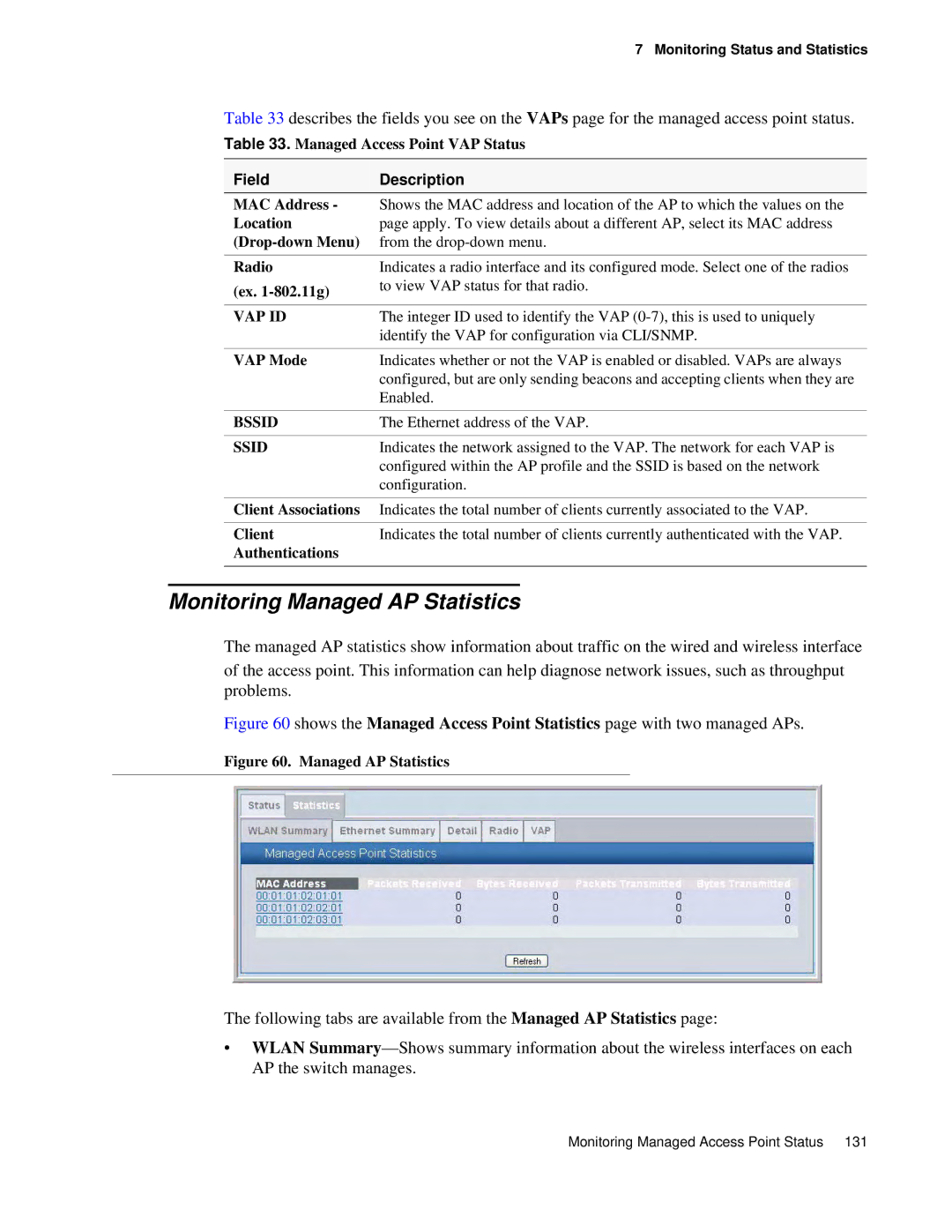
7 Monitoring Status and Statistics
Table 33 describes the fields you see on the VAPs page for the managed access point status.
Table 33. Managed Access Point VAP Status
Field | Description |
MAC Address - | Shows the MAC address and location of the AP to which the values on the |
Location | page apply. To view details about a different AP, select its MAC address |
| from the |
|
|
Radio | Indicates a radio interface and its configured mode. Select one of the radios |
(ex. | to view VAP status for that radio. |
| |
|
|
VAP ID | The integer ID used to identify the VAP |
| identify the VAP for configuration via CLI/SNMP. |
|
|
VAP Mode | Indicates whether or not the VAP is enabled or disabled. VAPs are always |
| configured, but are only sending beacons and accepting clients when they are |
| Enabled. |
|
|
BSSID | The Ethernet address of the VAP. |
|
|
SSID | Indicates the network assigned to the VAP. The network for each VAP is |
| configured within the AP profile and the SSID is based on the network |
| configuration. |
|
|
Client Associations | Indicates the total number of clients currently associated to the VAP. |
|
|
Client | Indicates the total number of clients currently authenticated with the VAP. |
Authentications |
|
|
|
Monitoring Managed AP Statistics
The managed AP statistics show information about traffic on the wired and wireless interface
of the access point. This information can help diagnose network issues, such as throughput problems.
Figure 60 shows the Managed Access Point Statistics page with two managed APs.
Figure 60. Managed AP Statistics
The following tabs are available from the Managed AP Statistics page:
•WLAN
Monitoring Managed Access Point Status 131
